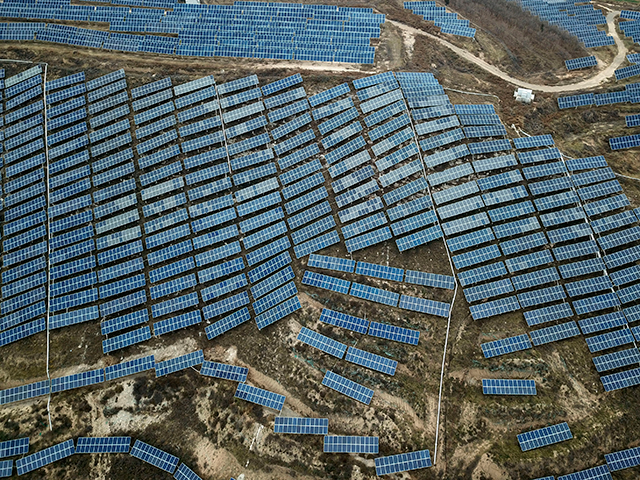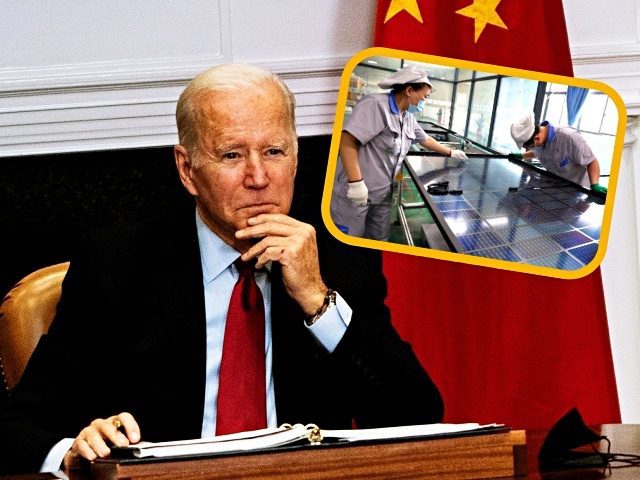President Joe Biden sided with suspected Chinese solar manufacturers this week, vetoing a bipartisan plan that would restore United States tariffs on China-made solar panels.
In June 2022, Biden announced a 24-month tariff moratorium on solar panel imports from Cambodia, Thailand, Vietnam, and Malaysia. Commerce Department officials suspect that the solar panels are actually made in China but have been routed through the four southeast Asian nations to avoid U.S. tariffs on China-made solar panels.
The suspension of tariffs came even as Biden’s Commerce Department found that BYD Hong Kong rerouted its production through Cambodia, Canadian Solar, Trina through Thailand, and Vina Solar through Vietnam for the sole purpose of avoiding the tariffs.
Late last month and earlier this month, the House and Senate passed a Congressional Review Act resolution that would restore U.S. tariffs on solar panel imports. The resolution garnered widespread bipartisan support.

A solar panel installation is seen in Ruicheng County in central China’s Shanxi Province. (AP Photo/Sam McNeil, File)
Biden, though, vetoed the resolution as expected, claiming U.S. tariffs on solar imports would “create new uncertainty for American businesses and workers in the solar industry.”
“We can and must strengthen our energy security by maintaining our focus on expanding U.S. capacity that is ready to come on line as this temporary bridge concludes in June 2024,” Biden wrote in a statement.
Biden’s solar panel tariff suspension last year came after intense lobbying from the Solar Energy Industries Association (SEIA) which has been revealed to be representing Chinese solar companies, some of which are accused of using forced slave labor in Xinjiang.
From 2001 to 2018, U.S. free trade with China eliminated 3.7 million American jobs from the economy — 2.8 million of which were lost in American manufacturing. During that same period, at least 50,000 American manufacturing plants closed down.
Those massive job losses have coincided with a booming U.S.-China trade deficit.
In 1985, before China entered the World Trade Organization (WTO), the U.S. trade deficit with China totaled $6 billion. In 2022, the U.S. trade deficit with China totaled more than $383 billion.
While skyrocketing U.S. trade deficits have led to devastation across America’s working and middle class over the last two decades, tariffs would be a boon for reshoring jobs and boosting wages. One such study finds that tariffs on nearly all foreign imports would create about ten million American jobs while boosting domestic output.
Related: CBP: China Tries to Keep Businesses from Knowing Products Are Made with Slave Labor and “Solar Panels Are a Big Issue”
John Binder is a reporter for Breitbart News. Email him at jbinder@breitbart.com. Follow him on Twitter here.

COMMENTS
Please let us know if you're having issues with commenting.